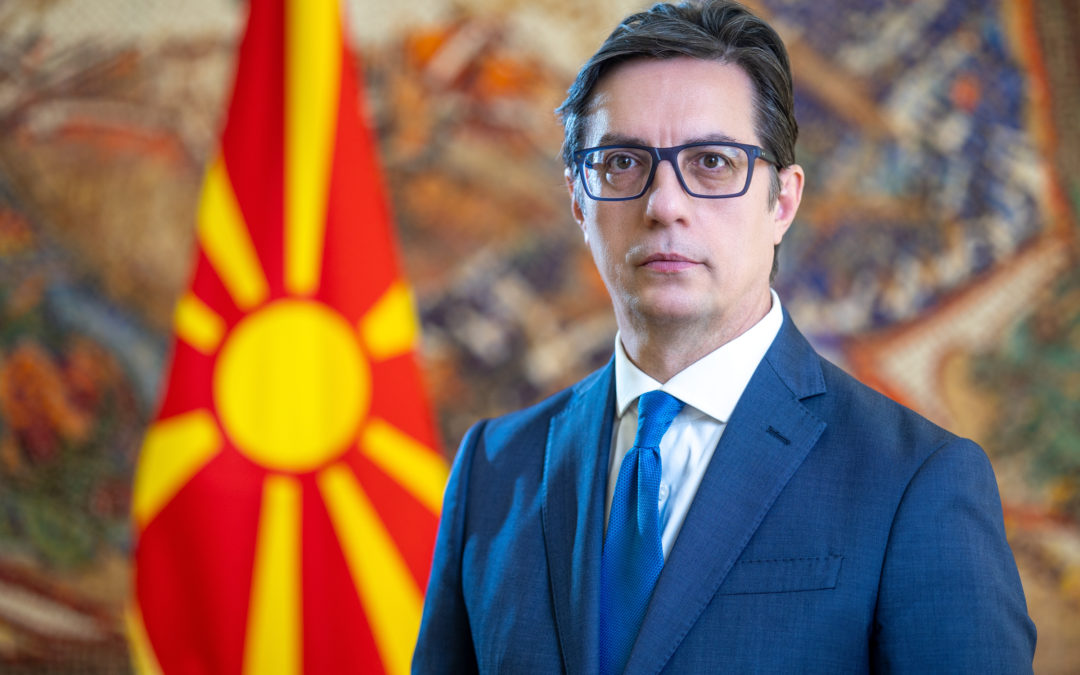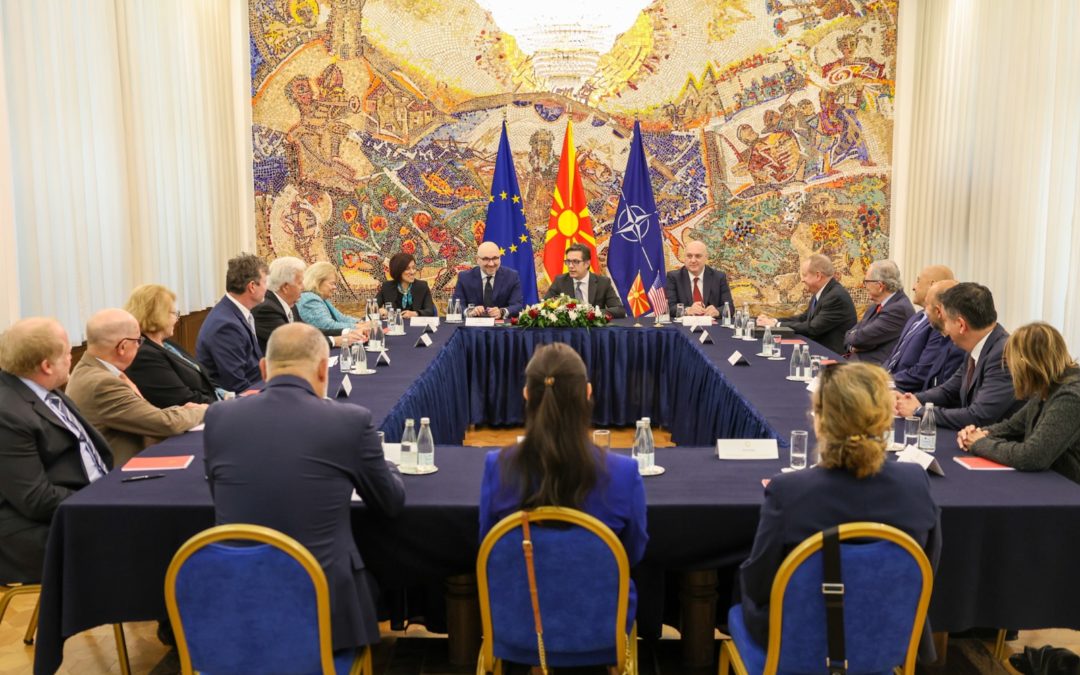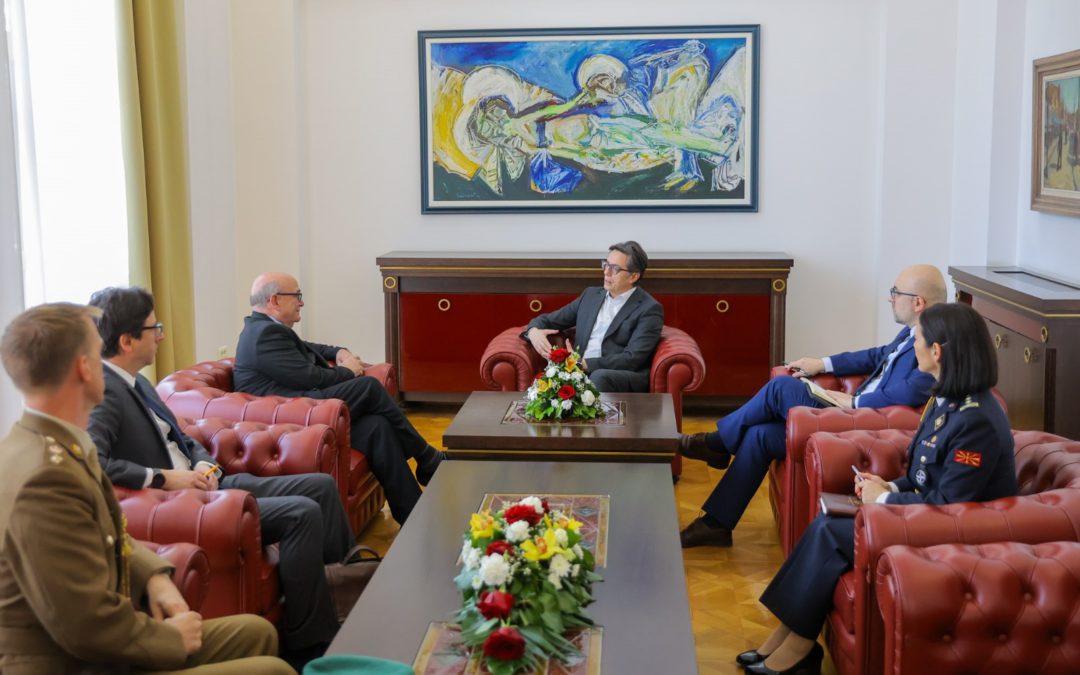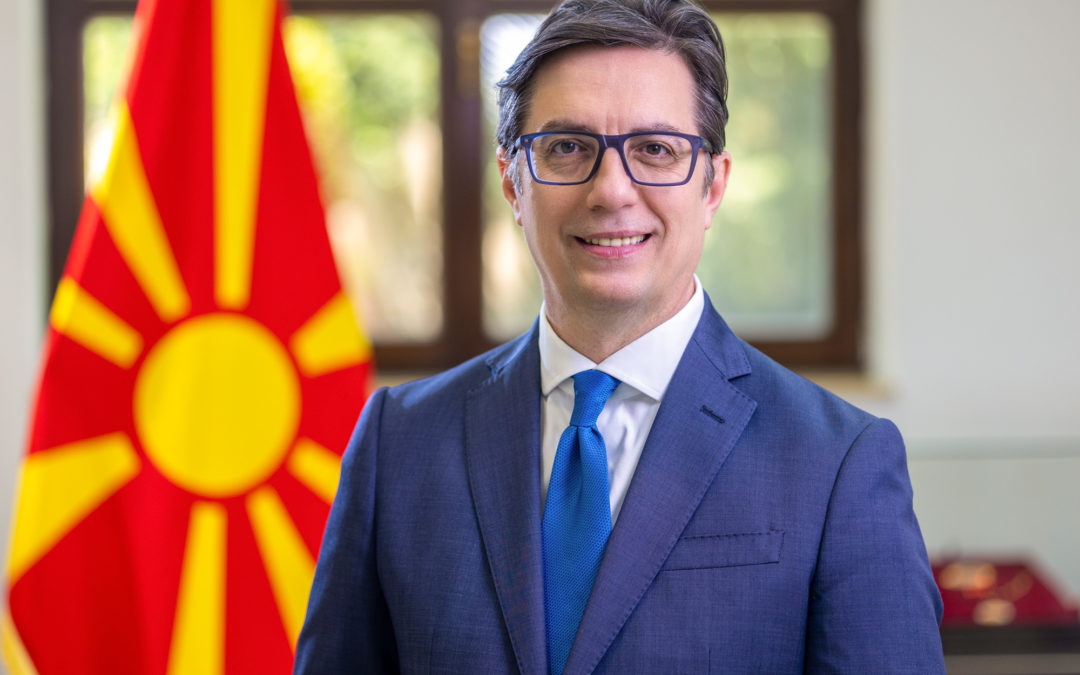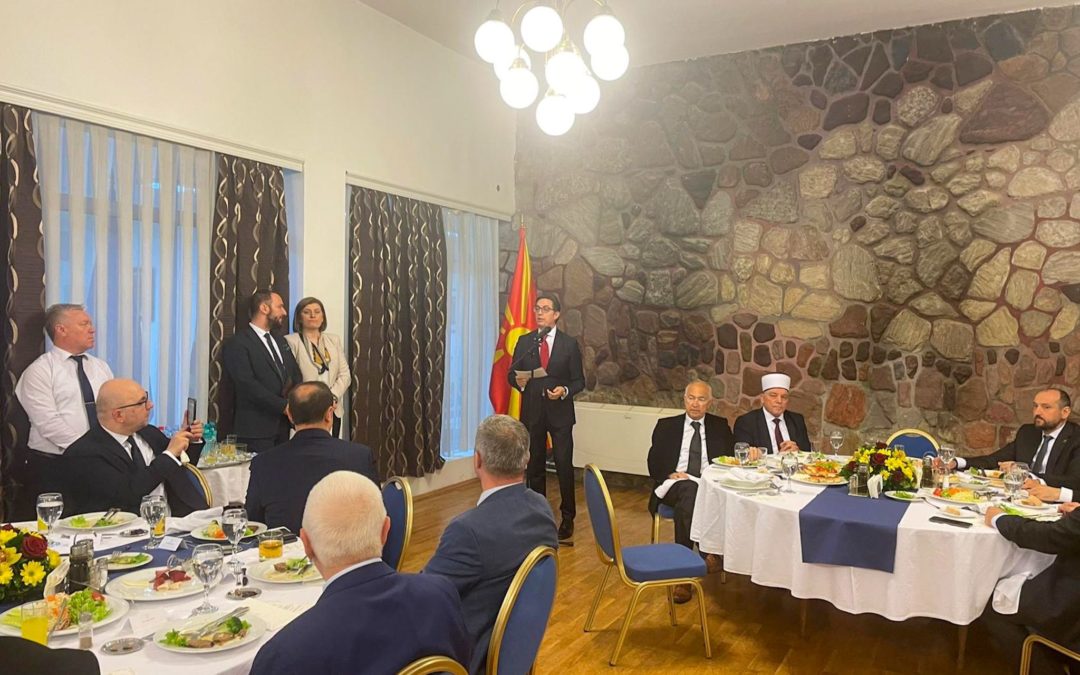Asia Times: Are you in favor of NATO’s involvement to deter Russia from further aggression, or do you believe it will beget increased instability? Ukrainian President Volodymyr Zelensky has been urging NATO to impose a no-fly zone over Ukraine to raise the costs of military escalation for Russia. Is it something you believe the security alliance should consider?
Pendarovski: Russia’s unprovoked and unjustified military aggression against Ukraine brought war back to Europe and grossly violates international law and the principles of the UN Charter, undermining European and global security and stability. North Macedonia, the most recent alliance member, fully supports NATO’s efforts for rapid response and deployment of troops on the territory of our allies, to strengthen security on the alliance’s Eastern flank and we contribute to these efforts, with our capabilities.
This is a question of our collective security and a question of European peace and to maintain the international order. At the same time, allies are united both in providing support to Ukraine, to uphold the right to self-defense. Allies are also united when it comes to that NATO should not deploy forces on the ground or in the airspace of Ukraine. We should give our best to ensure firstly to stop the Russian military invasion so the war won’t escalate beyond Ukraine.
Asia Times: Your country was constantly challenged by Russia in the lead-up to NATO accession in 2020, and Russian authorities had even threatened that in the event of a possible military flare-up, North Macedonia would be a “legitimate target.” Now that you have clearly stood by Ukraine and offered support, are you concerned Russia’s aggression may extend to your borders?
Pendarovski: We are vocal in our support for Ukraine’s right to defend its territorial integrity, sovereignty and independence within its internationally-recognized borders, as well as the right to self-determination – an extremely important identity issue for us as well. Firmly assured that it is of paramount importance to support any country in the world to uphold its fundamental right to self-defense, freedom and democracy.
It has been two years since North Macedonia joined NATO and we have proven to be a highly-valued ally, promoting security, stability and progress in the Western Balkan region. We are now part of NATO’s air policing system. Fighter jets from Greece are policing our skies. This is NATO solidarity in practice. Allies stand together, to protect and defend each other.
NATO is committed to the peaceful resolution of disputes. If diplomatic efforts fail, it has the military power to undertake crisis management operations. These are carried out under the collective defense clause of NATO’s founding treaty – Article 5 of the Washington Treaty or under a United Nations mandate, alone or in cooperation with other countries and international organizations.
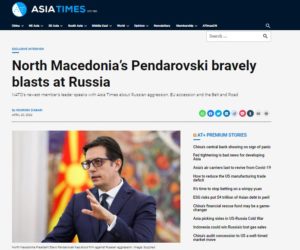
Asia Times: The government of North Macedonia has started preparations for receiving Ukrainian refugees fleeing war in their country. How many refugees have you taken in so far? Are you convinced you have the resources to accommodate a massive influx, if there is one, considering that you’ve already committed to hosting 750 Afghan refugees as well following the Taliban takeover of Kabul?
Pendarovski: There is a smaller number of Ukrainian nationals who have arrived in North Macedonia seeking refuge. The number is above 500 people, who are related to our country due to family relatives or friends. There is interagency cooperation of our institutions preparing to seek support to Ukrainian nationals who are fleeing their home country.
Asia Times: The President of Ukraine has said in recent remarks that Ukraine must admit it will not join NATO. Yet in February, President Zelensky’s spokesperson had said joining the alliance was a priority. This new declaration of neutrality is something Russia has long sought and it now appears Ukraine is making the concession. Do you believe this is appeasement in the face of Russian aggression, or a necessary diplomatic about-face to stave off further bloodshed and violence in Eastern Europe?
Pendarovski: It is up to the Ukrainians to decide their own future; it is up to the world to acknowledge that an independent and sovereign Ukraine is fundamental to global security. History has taught us that appeasement could encourage further aggression. Dialogue and diplomacy must prevail. A diplomatic way out is the only acceptable route to resolving the conflict in a way to ensure current disputes on core issues are negotiated and not fought.
Asia Times: Your country is a candidate for European Union membership, and Ukraine, facing overwhelming Russian belligerence, has also submitted a fast-track bid for EU accession. Do you believe EU membership will shore up Ukraine’s security and shield it against future Russian bellicosity? Considering that EU enlargement has opponents such as the French President Emmanuel Macron, who believes there should be treaty reforms before any future expansion, do you anticipate Ukraine’s bid will be successful?
Pendarovski: North Macedonia is a striking example that the EU’s path to membership is arduous. There is no way to shortcut the robust accession process. In our case, it is still unjustifiably lengthy taking into consideration that we have not even started the negotiations. At the last EU summit in Versailles, the leaders acknowledged the European aspirations and the European choice of Ukraine, as stated in the Association Agreement.
On February 28, 2022, exercising the right of Ukraine to choose its own destiny, the President of Ukraine submitted the application of Ukraine to become a member of the European Union. The Council has acted swiftly and invited the commission to submit its opinion on this application in accordance with the relevant provisions of the treaties, which set out the procedure for joining the bloc. But the treaties also set out many other things, including the criteria for membership and the fact that countries can only join the EU with the unanimous consent of all existing members.
Asia Times: Russia is not one of the top trading partners of North Macedonia, but still you had been invited by Russia to join the Eurasian Economic Union back in 2019. And among the European nations, North Macedonia is most reliant on Russian natural gas, importing nearly all of its gas consumption from Russia. Yet, you have joined the US and EU in imposing sanctions on Russia. Will these punitive measures hurt the North Macedonia economy?
Pendarovski: North Macedonia has never received an invitation to be part of the Eurasian Economic Union. In terms of sanctions, as a NATO member and a candidate country for EU membership, it was a logical step to accept the EU common foreign and security policy and the Union’s package of sanctions, including the 2014 package of measures [after Russia’s annexation of Crimea.]
North Macedonia is a small country and thus a small natural gas consumer compared to the rest of Europe. We might not face a severe crisis. However, it is also true that there is no other alternative for us when it comes to gas supply. It is expected that the new situation will not have a favorable impact on our economy or on Macedonian-Russian economic relations.
Asia Times: One of the most significant roadblocks to North Macedonia’s EU integration was removed when Greece withdrew its objection following the resolution of the naming dispute in 2019. Now, Bulgaria is getting in the way and has refused to approve the Union’s negotiation framework for your country. Do you believe you can engage Bulgaria diplomatically to settle the dispute and smooth the path to joining the EU? What will be the other possible obstacles?
Pendarovski: I sincerely hope that if we manage to overcome the blockade from Bulgaria, there will be no other obstacles on our path to the EU. Otherwise, it would be unsustainable in the long run and desperate for our citizens. Current developments in Ukraine and the latest geopolitical trends in international relations, as never before, indicate the need for full integration of the region into the EU.
We are currently facing growing Euro-skepticism and negative trends in the Western Balkans region. If the European institutions do not find a modality for unblocking the Macedonian-European integration process shortly, the enlargement policy and the credibility of the European Union as a whole will be seriously questioned.
Regarding the dispute with Bulgaria, the only way to achieve a result is to use reasoned rhetoric, mutual respect and avoid imposing unilateral solutions. Unfortunately, the Macedonian-Bulgarian dispute is irrational and paradoxical. We are in an unequal position, because we are outside the “club”, and it is pivotal for us in these negotiations to respect the principle of equality between the two sides.
EU membership is our strategic goal and there is no other alternative. Hence, there is a strong political will to continue the dialogue with Bulgaria, and to find a final compromise, which will not endanger the Macedonian identity. There is no other solution but to continue negotiating in the spirit of good neighborliness.
Asia Times: North Macedonia and Greece were entangled in a 27-year dispute that had overshadowed stability in the Balkans and strained your relations with a key neighbor. Now that the dispute is resolved, how do you see the prospects of cooperation with Greece within the framework of NATO and the Council of Europe, where both countries are member states? Are you going to rely on Greece as a major trading partner?
Pendarovski: Greece is now, and has been before, one of the most important trade partners of North Macedonia. In all these past years, during the bilateral dispute, the relations between the two business communities have never been discontinued. It is a fact that the Prespa Agreement that we managed to reach after more than two decades of negotiations, was a difficult step for both countries, but we reached it in the interest of our common future.
What has become a reality for us since then is NATO membership, where we are formal allies. We are committed to promoting and defending the common values, in service of the stability and prosperity of the region and the entire Euro-Atlantic area. Today, Greece is a supporter of the European perspective of North Macedonia.
As for economic cooperation, Greece is the fifth largest trading partner for the Macedonian economy and the seventh-largest export market for Macedonian products. Statistics show that in the past five years, imports from Greece have increased significantly, despite the small growth of exports, though the Covid-19 pandemic has a large share in these trends.
In the field of economy, energy and infrastructure, projects still remain at the top of our priorities. In the field of politics, by strengthening regional cooperation, we need to contribute to a stable, secure and prosperous region.
Asia Times: In 2013, North Macedonia joined China’s Belt and Road Initiative. North Macedonia was the first country of the 16+1 cooperation platform to capitalize on the US$10 billion credit line earmarked for infrastructure projects. What are the infrastructural initiatives you expect China to implement as part of the BRI? How will inclusion in this ambitious Chinese scheme give a boost to the national economy?
Pendarovski: North Macedonia and China’s relationship has been developing in the spirit of friendship, mutual understanding and respect for a longer period. An integral component of the relations is the 16+1 process. Indeed, North Macedonia was the first country to sign a specific agreement for using financial assets for infrastructure projects.
However, in reality, North Macedonia still hasn’t benefited significantly from the 16+1 initiative. In terms of involvement in this initiative, initially our country was ranked eighth and classified as an “ambitious” country, and then fell to 13th place.
The construction of the two highways by the Chinese state-owned Sinohydro project, financed by a $10 billion credit line provided by China, was planned as one of the key projects of the 16+1 initiative. However, the project appeared not to be a success due to internal domestic controversies and no other significant initiatives were proposed.
Therefore, I consider that the cooperation within 16+1 should be directed towards specific projects and have specific results, especially in the areas of economic and trade exchange and capital infrastructure projects.
In order to have genuine progress and increased cooperation, free trade should be enabled, without administrative burdens, further opening of the Chinese market for produces from the Central and Eastern Europe (CEE), fair competition, equal treatment of CEE companies on Chinese markets, respecting the principles of reciprocity and mutual benefit, respecting the multilateral trade rules of the World Trade Organization, in accordance with the regulations, policies, values and principles of the EU.
Asia Times: Does your government have a long-term vision for stronger partnerships with Middle East nations, where your government’s diplomatic footprint seems to be tenuous? For instance, are there plans to open embassies in Iran, Saudi Arabia, Kuwait, Jordan and other major states in the region with which you haven’t worked closely? Is North Macedonia willing to benefit from augmented trade with these nations, which are significantly rich in terms of natural resources and energy reserves?
Pendarovski: The Republic of North Macedonia, as a small country, practices a policy of openness to the East and to the West. We have always been ready to build relations and develop cooperation with all well-intended countries in the world.
North Macedonia has established diplomatic relations with the countries you mentioned, but unfortunately, we do not have an intensive and active political dialogue and exchange of visits, which, on the other hand, is a precondition for deepening bilateral cooperation.
Hence, mutual efforts are needed to pave that path, to improve the contractual framework and to create conditions for the use of economic potentials and trade. As for the opening of diplomatic missions, it depends not only on our political will, but, above all, on our capacities and resources.
